Overview of the Status and Future Direction
Medical education research is a relatively new field, which can trace its origins precisely to a group in Buffalo, NY, led by George Miller in the 1950s. These individuals came from diverse backgrounds, with virtually no relevant prior academic achievement. However through the collaborations engendered by the collaboration between medical teachers and academics, the field rapidly evolved. A major stimulus for the field was the development of the new problem-based schools at McMaster and Maastricht in the 1970s, with both schools committing resources to fund major research programs to evaluate the success of these innovations. Finally, another parallel development was the efforts by the American licensing and certifying bodies, primarily the National Board of Medical Examiners and the American Board of Internal Medicine, as well as the Medical Council of Canada, to improve student evaluation methods.
All of these developments set the stage for the field as we see it today, where a large number of researchers from many different social and behavioral sciences, from policy analysis to kinesiology, use a potpourri of research methods to address diverse questions related to health professions education. While this diversity is an enormous strength and a defining characteristic of the field, it does bring into focus some fundamental questions about what are the common threads. In particular, as the field matures standards for research have evolved. No longer is the focus solely or even primarily on the design of solutions for local problems; instead many journals demand evidence that research has theoretical underpinnings and generalizable application. In this session, I will attempt to engage you in exploring some of these questions. We will explore, in a general way, what, if any, are the commonalities of all our research enterprises, and indeed what is the demarcation between scientific inquiry and other academic pursuits. In the course of the talk, we should be able to better understand what are the ingredients of successful research in health sciences education.
Research and Scholarly Work in Health Sciences Education: How to Get Started
This session will introduce the audience to the basics of medical education research and scholarly work. We will discuss topics that can be studied or reported, best practices and challenges, and things to consider before engaging in medical education research. We will illustrate the steps through a few case studies.
How to Do Educational Research
What is educational research in medical and health professions education? What types of research are conducted? What methods are used? These will be illustrated with examples from the literature. Following a brief review of these topics, an example of the educational research process will be provided that examines the choices at each stage of the process.
How to Find Funding for Your Educational Research
One barrier to research is the attainment of funding resources to launch and continue quality studies. This session will outline resources for the early stages of research and provide guidance for grant proposal preparation, if it is determined that external funding is needed. Free and low-cost resources for obtaining preliminary data and sources of external funds will be described. An overview of grant writing and information on where to obtain training will be presented. Information on proposal writing basics, tips to increase the chances of success, the grant application process, and basic proposal and budget requirements will be provided. Potential funding sources appropriate for beginning investigators will also be listed. Suggestions will be offered for revising and resubmitting unsuccessful proposals.
How to Publish Your Results
In publishing scholarly work, there are several opportunities available to present your results to a specific audience. One way of sharing your results is presenting at conferences on medical education. These conferences can be found at a national as well as an international level. The most common types of conference contributions are the oral and poster presentations. Presenting at a conference can be a good and maybe even the most appropriate way to publish your work. Another option is publication in a (scientific) medical education journal. For publishing in a journal, not only the writing skills of the author are important. At least as important is choosing the right strategy in submitting the work to the most appropriate journal. It is also useful to know how the Editorial Office and Editorial Board of a journal handle the manuscripts received. Knowledge of these last two aspects can significantly increase the chances for acceptance of the manuscript. The session will give the attendees more insight in the editorial processes of a journal and several concrete strategies to increase the chances of acceptance of their work. The presenter will showcase the internal procedures of IAMSE’s journal Medical Science Educator to explain the attendees what is happening behind the scenes of a journal. Some general advice will be given in order to make the process of submission as successful as possible. At the end of the session the participants will have a better understanding of ways to publish their results.
Panel Discussion: Editors’ Tips for publication success
Publishing your research results in a journal for medical education can be a very difficult thing to do. There are numerous journals out there, so which one is the most appropriate one for you to choose? Journals have their own focus and topics, their own audience, and their own procedures on reviewing and selecting manuscripts to publish. To help the participants of this seminar in getting their work published, a panel of 5 Editors-in-Chief will present their own journal for medical education and will highlight the unique properties of that specific journal. The journals represented in the panel are Medical Science Educator, Medical Teacher, Teaching and Learning in Medicine, Advances in Health Sciences Education, and Medical Education Online. Each Editor will also bring forward a tip for authors that might be helping them in the process of preparing, submitting and revising materials in such a way it increases the chances of success. After the short presentations, the seminar will be open for questions from the audience.
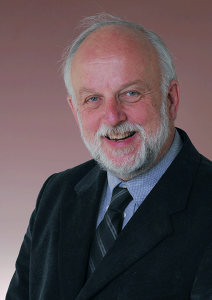 Geoff Norman is Professor of Clinical Epidemiology and Biostatistics, McMaster University. He received a Ph.D. in nuclear physics from McMaster University in 1971, and subsequently a M.A. in educational psychology form Michigan State University in 1977. He is the author of 10 books in education, measurement and statistics, and 300 journal articles.
Geoff Norman is Professor of Clinical Epidemiology and Biostatistics, McMaster University. He received a Ph.D. in nuclear physics from McMaster University in 1971, and subsequently a M.A. in educational psychology form Michigan State University in 1977. He is the author of 10 books in education, measurement and statistics, and 300 journal articles.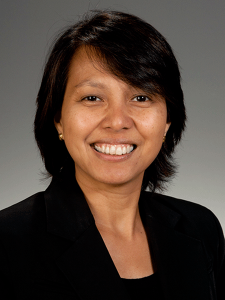 Dr. Grace Brannan is a Sensory Scientist/Statistician with 20 years of industry and academic research, teaching and grant writing experience. Her expertise is in the areas of sensory science, qualitative and quantitative population-based, behavioral, and public health research studies, quality improvement, design of experiments, and statistics. She held a variety of technical consulting and management positions prior to joining the Centers for Osteopathic Research and Education (CORE) at Ohio University, in 2006.
Dr. Grace Brannan is a Sensory Scientist/Statistician with 20 years of industry and academic research, teaching and grant writing experience. Her expertise is in the areas of sensory science, qualitative and quantitative population-based, behavioral, and public health research studies, quality improvement, design of experiments, and statistics. She held a variety of technical consulting and management positions prior to joining the Centers for Osteopathic Research and Education (CORE) at Ohio University, in 2006.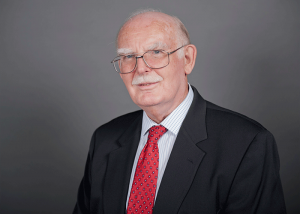 BS in psychology at Boston University, MEd in educational research at the University of Pittsburgh. Developed programmed instruction and designed computer-based instruction at the American Institutes of Research in Pittsburgh. Two years in the Army Corps of Engineers with service in Vietnam as an information officer. PhD with an interest in technology and computer-based learning at Penn State. First academic appointment in the College of Education at the University of Delaware. Started my medical education career at the Medical College of Georgia in the Division of Systems and Computer Services and subsequently the Department of Family Practice. In 1980 I returned north to the Mount Sinai School of Medicine as Assistant and then Associate Dean for Academic Affairs. In 1987 I moved to the New York Institute of Technology and became director of the Educational Development Resource Unit and Associate Professor of Medical Education at the New York College of Osteopathic Medicine (now NYITCOM). At NYCOM I obtained several training grants and helped start several departments in a new school of health professions. I joined TouroCOM-Middletown as Research Director (part time) in October, 2014 and also continue as Research Director for the New York Colleges of Osteopathic Medicine Educational Consortium (part time). Primary interest is promoting and supporting research by residents and students.
BS in psychology at Boston University, MEd in educational research at the University of Pittsburgh. Developed programmed instruction and designed computer-based instruction at the American Institutes of Research in Pittsburgh. Two years in the Army Corps of Engineers with service in Vietnam as an information officer. PhD with an interest in technology and computer-based learning at Penn State. First academic appointment in the College of Education at the University of Delaware. Started my medical education career at the Medical College of Georgia in the Division of Systems and Computer Services and subsequently the Department of Family Practice. In 1980 I returned north to the Mount Sinai School of Medicine as Assistant and then Associate Dean for Academic Affairs. In 1987 I moved to the New York Institute of Technology and became director of the Educational Development Resource Unit and Associate Professor of Medical Education at the New York College of Osteopathic Medicine (now NYITCOM). At NYCOM I obtained several training grants and helped start several departments in a new school of health professions. I joined TouroCOM-Middletown as Research Director (part time) in October, 2014 and also continue as Research Director for the New York Colleges of Osteopathic Medicine Educational Consortium (part time). Primary interest is promoting and supporting research by residents and students.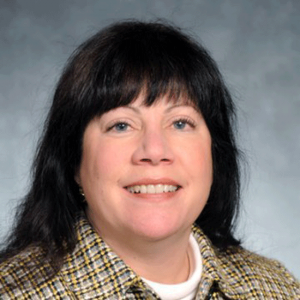 Jane Dumsha has been at Philadelphia College of Osteopathic Medicine since 1995. She was the Director of Research and Sponsored Programs from 1995 to 2014 and has served as Chief Research Operations Officer from July 2014 to present. She is responsible for all pre-award grant activities, including budget development and management, grant and contract negotiation with funding agencies and subcontractors, and compliance with all institutional research assurances. Her office is also responsible for the IRB and IACUC. Dr. Dumsha was previously a clinical research coordinator at Thomas Jefferson University and worked at University of Medicine and Dentistry of New Jersey for 9 years, 7 of them at the UMDNJ-School of Osteopathic Medicine (now Rowan SOM). Jane has been a Certified Health Education Specialist since 1997. She earned her Ph.D. from TUI University in June 2008.
Jane Dumsha has been at Philadelphia College of Osteopathic Medicine since 1995. She was the Director of Research and Sponsored Programs from 1995 to 2014 and has served as Chief Research Operations Officer from July 2014 to present. She is responsible for all pre-award grant activities, including budget development and management, grant and contract negotiation with funding agencies and subcontractors, and compliance with all institutional research assurances. Her office is also responsible for the IRB and IACUC. Dr. Dumsha was previously a clinical research coordinator at Thomas Jefferson University and worked at University of Medicine and Dentistry of New Jersey for 9 years, 7 of them at the UMDNJ-School of Osteopathic Medicine (now Rowan SOM). Jane has been a Certified Health Education Specialist since 1997. She earned her Ph.D. from TUI University in June 2008.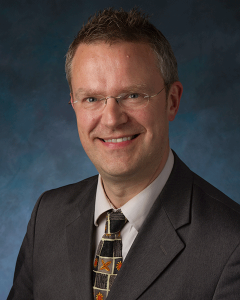 Peter de Jong is a Technology Enhanced Learning staff adviser at the Leiden University Medical Center in The Netherlands. In this position at the Center for Innovation in Medical Education, he has been managing several major programs within Medical School in the field of development, application and evaluation of educational technologies. Peter has a Master degree in Medical Technology from Eindhoven University and a PhD in Biophysics/Physiology from Maastricht University. He has been a member of the Board of Directors and Executive Committee of the Netherlands Association for Medical Education (NVMO), he has been Chair of their national Special Interest Group on E-learning in Medicine and he chaired the 2000 NVMO Annual Meeting.Since 2007 Peter is involved in the International Association of Medical Science Educators (IAMSE), an international organization with a focus on advancing medical education through faculty development while ensuring that the teaching and learning of medicine continues to be firmly grounded in science. He has served the organization as Vice President, and in 2009 as Program Chair and Site Host for the first IAMSE Annual Meeting outside of North America. Currently he holds the position of Editor-in-Chief of Medical Science Educator, the online journal of IAMSE.
Peter de Jong is a Technology Enhanced Learning staff adviser at the Leiden University Medical Center in The Netherlands. In this position at the Center for Innovation in Medical Education, he has been managing several major programs within Medical School in the field of development, application and evaluation of educational technologies. Peter has a Master degree in Medical Technology from Eindhoven University and a PhD in Biophysics/Physiology from Maastricht University. He has been a member of the Board of Directors and Executive Committee of the Netherlands Association for Medical Education (NVMO), he has been Chair of their national Special Interest Group on E-learning in Medicine and he chaired the 2000 NVMO Annual Meeting.Since 2007 Peter is involved in the International Association of Medical Science Educators (IAMSE), an international organization with a focus on advancing medical education through faculty development while ensuring that the teaching and learning of medicine continues to be firmly grounded in science. He has served the organization as Vice President, and in 2009 as Program Chair and Site Host for the first IAMSE Annual Meeting outside of North America. Currently he holds the position of Editor-in-Chief of Medical Science Educator, the online journal of IAMSE.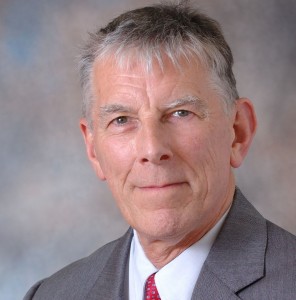 Professor Ronald Harden graduated from medical school in Glasgow, UK. He completed training and practised as an endocrinologist before moving full time to medical education. He is Professor of Medical Education (Emeritus) University of Dundee, Editor of Medical Teacher and General Secretary and Treasurer of the Association for Medical Education in Europe (AMEE). Professor Harden has pioneered ideas in medical education including the OSCE and has published two books and more than 400 papers in leading journals. His contributions to excellence in medical education have attracted numerous international awards and an OBE by Her Majesty the Queen.
Professor Ronald Harden graduated from medical school in Glasgow, UK. He completed training and practised as an endocrinologist before moving full time to medical education. He is Professor of Medical Education (Emeritus) University of Dundee, Editor of Medical Teacher and General Secretary and Treasurer of the Association for Medical Education in Europe (AMEE). Professor Harden has pioneered ideas in medical education including the OSCE and has published two books and more than 400 papers in leading journals. His contributions to excellence in medical education have attracted numerous international awards and an OBE by Her Majesty the Queen.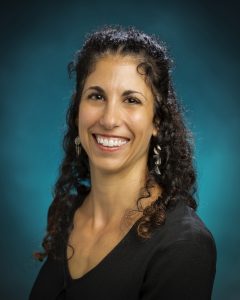 Dr. Anna T Cianciolo, PhD, is an Assistant Professor in the Department of Medical Education at Southern Illinois University School of Medicine. She earned her PhD in Engineering Psychology from the Georgia Institute of Technology in 2001 and has devoted her career to investigating the nature of professional expertise and its development. Her two-year postdoctoral position at Yale University (2001-2003) launched the first part of her career studying the design, development, and evaluation of US Army officer education and leader development. In 2005, she founded Command Performance Research, Inc. (Champaign, Illinois), where she collaborated with the US Army Research Institute and the US Army Training and Doctrine Command to shape training policy on formal institutional instruction and technology-enabled learning. She joined SIUSOM in 2011, where her teaching duties include faculty development and research mentorship of medical students. Her current research focuses on examining faculty and student practices in problem-based learning tutorial discussions, designing observational assessments of entrustment, and enhancing conceptual understanding of diagnostic expertise. In 2014, she was selected to receive the Association for Medical Education in Europe’s Miriam Friedman Ben-David New Educator Award. She is currently the Editor-in-Chief of Teaching & Learning in Medicine and Chair of the AAMC Central Group on Educational Affairs Section on Medical Education Scholarship Research and Evaluation.
Dr. Anna T Cianciolo, PhD, is an Assistant Professor in the Department of Medical Education at Southern Illinois University School of Medicine. She earned her PhD in Engineering Psychology from the Georgia Institute of Technology in 2001 and has devoted her career to investigating the nature of professional expertise and its development. Her two-year postdoctoral position at Yale University (2001-2003) launched the first part of her career studying the design, development, and evaluation of US Army officer education and leader development. In 2005, she founded Command Performance Research, Inc. (Champaign, Illinois), where she collaborated with the US Army Research Institute and the US Army Training and Doctrine Command to shape training policy on formal institutional instruction and technology-enabled learning. She joined SIUSOM in 2011, where her teaching duties include faculty development and research mentorship of medical students. Her current research focuses on examining faculty and student practices in problem-based learning tutorial discussions, designing observational assessments of entrustment, and enhancing conceptual understanding of diagnostic expertise. In 2014, she was selected to receive the Association for Medical Education in Europe’s Miriam Friedman Ben-David New Educator Award. She is currently the Editor-in-Chief of Teaching & Learning in Medicine and Chair of the AAMC Central Group on Educational Affairs Section on Medical Education Scholarship Research and Evaluation.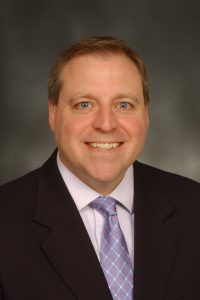 Scott Cottrell, Ed.D. was appointed Associate Dean for Student Services and Curriculum at the West Virginia University School of Medicine in 2011. Dr. Cottrell is an Associate Professor in the Department of Medical Education. His research interests include curricular development and assessment. He was recently elected as Chair for the Generalist in Medical Education, and is serving as the Southern Group on Education Affairs (SGEA) section’s Chair for Medical Education Research, Scholarship and Evaluation (MESRE- formerly RIME). Scott currently serves as the editor for Med Ed Online.
Scott Cottrell, Ed.D. was appointed Associate Dean for Student Services and Curriculum at the West Virginia University School of Medicine in 2011. Dr. Cottrell is an Associate Professor in the Department of Medical Education. His research interests include curricular development and assessment. He was recently elected as Chair for the Generalist in Medical Education, and is serving as the Southern Group on Education Affairs (SGEA) section’s Chair for Medical Education Research, Scholarship and Evaluation (MESRE- formerly RIME). Scott currently serves as the editor for Med Ed Online.